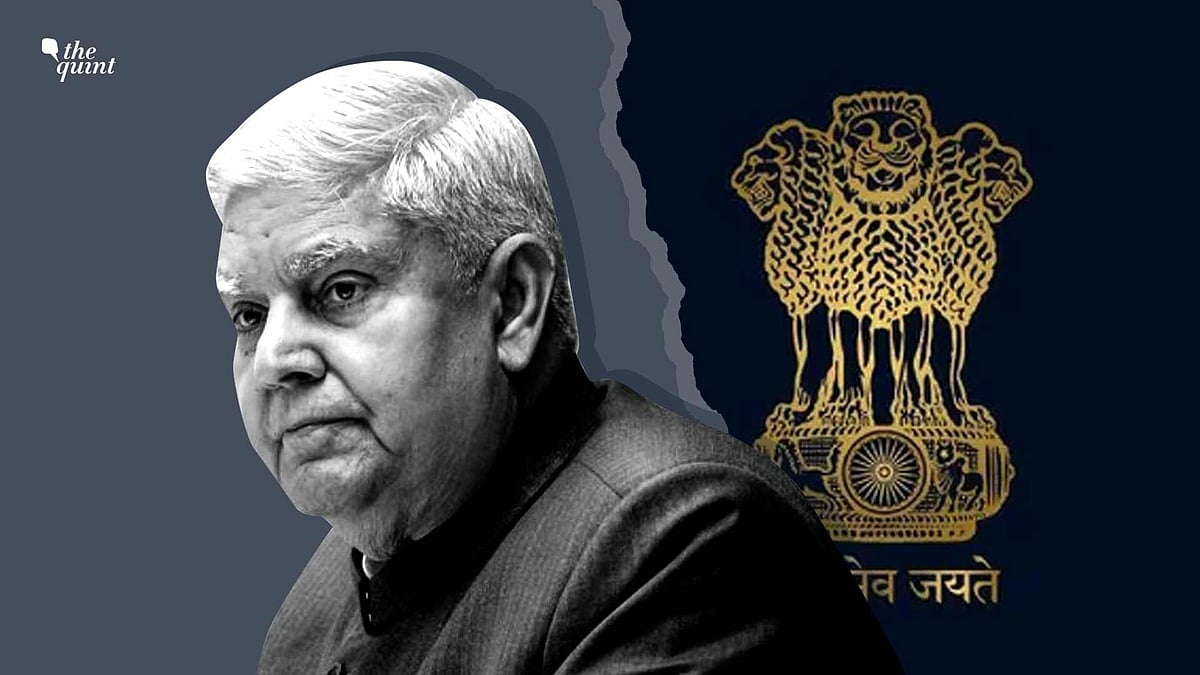
Jagdeep Dhankhar's Resignation Mystery: Clues, Chatter, and Conundrum
Circumstantially, it seems likely that the decision of Dhankhar's resignation was taken on the spur of moment.

advertisement
Vice President Jagdeep Dhankhar’s sudden resignation has triggered one of India’s most unusual political mysteries. Citing health reasons, Dhankhar stepped down without warning.
The near-complete silence from the ranks of the ruling Bharatiya Janata Party (BJP) on an extraordinary event of such scale, has only deepened the mystery. The Congress is sizing up the event with zeal, in hopes that it is full of political possibilities.
Not only did Dhankhar preside over the Rajya Sabha on Day One of the Monsoon Session, but also actively held meetings and consultations.
Heavy Air in Rajya Sabha Corridors
Dhankhar is learnt to have spent more time with the Opposition leaders in the last few hours preceding his resignation. As Chair of the Rajya Sabha, Dhankhar would have wanted Union Minister for Parliamentary Affairs Kiren Rijiju to be calling on him frequently on a day when the Opposition stepped up heat in the Upper House of Parliament.
BJP President JP Nadda, who is also Leader of the Rajya Sabha, should have been in contact too.
Parliament observers, who have covered the two Houses, know that the Union Minister for Parliamentary Affairs splits time between the offices of the Lok Sabha Speaker and the Rajya Sabha Chair, managing channels of communication with the Opposition and keeping both Houses briefed.
The ongoing Monsoon Session is sweating out floor managers of the ruling National Democratic Alliance (NDA). Besides possibilities of impeachment motions against two judges, the Opposition wants to pin down the NDA on the political mat over US President Donald Trump’s claims regarding India-Pakistan military tensions, and the Special Intensive Revision (SIR) of the electoral roll in Bihar.
With stakes running high and the Opposition sounding more united than ever, pressure-cooker situations in the NDA camp may not be ruled out.
Did Dhankhar Quit in a Huff?
Circumstantially, it seems likely that the decision of the resignation was taken on the spur of moment.
Dhankhar hogged more eyeballs than Om Birla, his counterpart in the Lok Sabha, for his wont of speaking his mind often and going unscripted during heated exchanges in the House. His stature backed this reputation: an MP in the 1980s, MLA in the early 1990s, Union minister, senior lawyer, and governor of West Bengal.
Dhankhar, thus, could have been expected to be assertive in his conversations with members of the ruling alliance at the Centre, as well as the Opposition. He could also have been susceptible to impulsive decisions if any red line set by him would have been breached by anyone from the treasury benches or the Opposition.
Chatter that Builds on Conundrum
Dhankhar frequently asserted his identity of a farmers’ leader. He also hails from politically assertive Jat community. The Jat vote base sweeps through the vast expanse of western Uttar Pradesh, Haryana, Punjab, and Rajasthan.
That his resignation could also have suited the NDA for gains through a convenient distraction in Parliament from the Opposition agenda also fails the test of political prudence. Without him, his deputy Harivansh Narayan Singh would still have to deal with the same Opposition pressures.
Early Signs of Looming Storm
While farmers held firm at the Haryana border, agitating for a host of demands, Dhankhar had raised eyebrows by posting a small clip of his speech, in which he almost chided Union Minister for Agriculture and Farmers' Welfare, Shivraj Singh Chouhan. Dhankhar told Chouhan that the farmers need be treated with respect, and there should be discussions with them.
Under his watch, scores of Opposition MPs had been suspended from the Rajya Sabha and proceedings in the Rajya Sabha were regularly acrimonious. With the Opposition stronger in the Upper House, Dhankhar often expressed his frustrations, at times reducing his presence in the House, a well-known pressure tactic used by presiding officers to cool tempers in Parliament.
His predecessor M Venkaiah Naidu had also failed to get a second term as the Vice President of India. An elevation to Rashtrapati Bhavan was not likely, and Dhankhar would have also read the writing on the wall: Rajya Sabha sessions were going to be far from smooth, amid deepening discord between the treasury and the Opposition.
(Manish Anand is a senior Delhi-based journalist with over two decades of political journalism, including tracking the affairs of the BJP and the RSS, for several publications. This is an opinion piece and the views expressed above are the author’s own. The Quint neither endorses nor is responsible for the same.)
- Access to all paywalled content on site
- Ad-free experience across The Quint
- Early previews of our Special Projects
Published: undefined